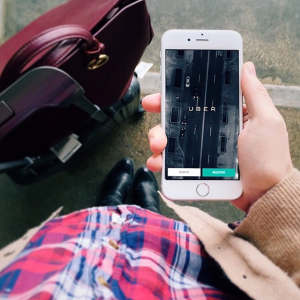When it comes to Uber, Muriel Bowser is no Bill de Blasio.
The D.C. mayor made that much clear on MSNBC’s “Morning Joe” Tuesday, explaining how the District doesn’t limit the number of vehicles car-hailing companies can have on the streets, which is exactly what the Big Apple’s chief executive was — until Wednesday — attempting to do.
“We’ve solved our Uber problem,” Bowser told co-host Mika Brzezinski. “What we realized in our city is that our residents have embraced the sharing economy.”
The contrast between New York and the District on this issue is indeed striking.
Until the middle of this week, New York officials were engaged in an escalating battle with Uber over proposed regulation, premised on the notion that company cars were slowing traffic. Uber launched a massive campaign against city hall, including brutal television ads arguing that limits on its service would disproportionally harm minority communities. The mayor and his allies responded by painting the company as just another greedy corporation protecting its bottom line — “Wal-Mart on wheels,” in the words of one activist.
Now de Blasio is backing down, saying the city will spend four months studying the effects of car-hailing services. Although he’s stressing that a vehicle cap isn’t off the table, the developments are being seen as an Uber victory.
The District’s experience was nothing like this. D.C. legalized the operations of car-hailing services last year, without much fuss. (The D.C. Council vote was 12-1.) Uber was forced to comply with some regulation, but ultimately praised the legislation, saying it codified safety rules that were already in place.
In an interview with InsideSources Wednesday, D.C. Council member Mary Cheh said the District has been friendly to Uber and similar companies first and foremost because they offered an alternative to traditional taxi services that were unpopular. According to Cheh, who authored D.C.’s Uber bill, many residents found traditional taxis inaccessible and unreliable, making their industry ripe for disruption.
“There was this yearning for something better, and Uber filled that niche,” the council member said.
InsideSources then asked Cheh about some liberals’ criticism of how companies like Uber classify their workers as independent contractors as opposed to full-time employees with benefits. (Democratic presidential candidate Hillary Clinton recently cautioned that this “gig economy” is “raising hard questions about workplace protections and what a good job will look like in the future.”)
But Cheh didn’t seem concerned. Most traditional taxi drivers in the District are independent contractors, and the council member argued that their ability to work flexible hours and “be their own bosses” should be considered an asset.
“That kind of freedom is quite desirable,” she said.
Cheh, who like Bowser and de Blasio is a Democrat, also rejected the idea that regulation on companies like Uber is necessarily a liberal or progressive cause.
“I don’t think ideology has anything to do with this,” she said. “I’m not going to get in there and start regulating stuff that doesn’t need regulation.”
Another factor at play last year was Uber’s lobbying effort. Washington, D.C.’s NPR affiliate reported that the company spent $314,074 to influence the D.C. government, mostly commonly interacting with Cheh. For her part, the council member said she used these meetings to push back against some of Uber’s demands, which led to legislation that “was in the public interest.”
Critics of de Blasio have also raised the money in politics angle, noting that the mayor’s deep-pocketed donors include representatives of New York’s traditional taxi industry.

